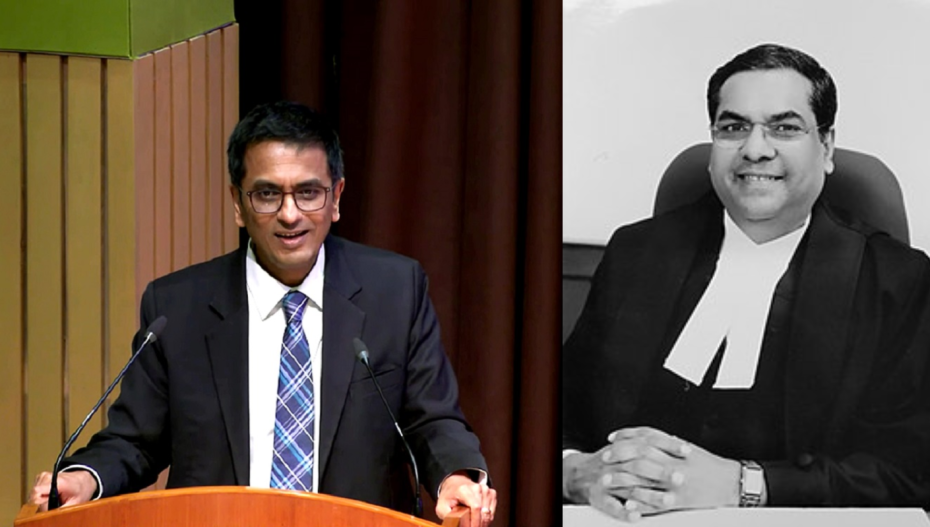Chief Justice of India (CJI) Chandrachud has officially recommended Justice Sanjiv Khanna, the Supreme Court’s second-most senior judge, as his successor on Thursday.
In a letter to the Central government, CJI Chandrachud indicated that, as he will be stepping down from office on November 10, Justice Khanna would be his successor.
Justice Khanna will begin serving as India’s 51st Chief Justice after receiving government clearance.
He is scheduled to serve a term of six months, which will end on May 13, 2025, before his retirement.
The letter is written in accordance with the practice in which the Chief Justice of India steps down and names the next in line to succeed him or her. The proposal is then approved by the Union government.
Justice Chandrachud became the Chief Justice of India on November 9, 2022. Supreme Court judges retire at the age of 65.
Khanna’s Background
Born on May 14, 1960, Justice Khanna joined the Bar Council of Delhi as an advocate in 1983, initially practising at the district courts in the Tis Hazari complex and subsequently at the Delhi High Court and various tribunals.
He was appointed as an additional judge of the Delhi High Court in 2005 and became a permanent judge in 2006.
On January 18, 2019, Justice Khanna was elevated to the position of Supreme Court Judge.
Chandrachud’s Background
Dhananjaya Yeshwant Chandrachud, born on November 11, 1959, is an Indian jurist currently serving as the 50th Chief Justice of India since November 2022.
He was appointed a judge of the Supreme Court of India in May 2016 and previously held the position of Chief Justice of the Allahabad High Court from 2013 to 2016. Before that, he served as a judge of the Bombay High Court from 2000 to 2013.
CJI Chandrachud studied at Delhi University and Harvard University and has worked as a lawyer for Sullivan & Cromwell, as well as practising in the Bombay High Court.
He has served on benches that have delivered historic verdicts in cases including the electoral bond framework, the Ram Janmabhoomi ruling, the Sabarimala issue, same-sex marriage, and the removal of Jammu and Kashmir’s special status.
Also Read: Canada’s Accusations Against Modi Government, Amit Shah: What We Know, What We Don’t Know












